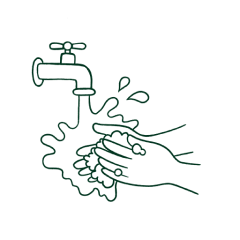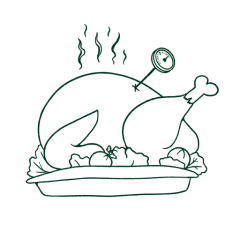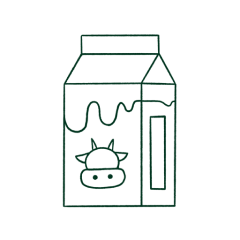Campylobacter (Campy)
Campylobacter (campy) is a common infection caused by bacteria that affects the stomach and, rarely, the bloodstream. It's the main reason people get bacterial-induced diarrhea in the United States.
Campy Cases in Whitman County
How Did I Get Campy?
Campy spreads through contaminated food or drink, or contact with infected poop from people or animals. It's commonly found in poultry, raw milk, and untreated water.
What Are Common Symptoms of Campy?
Symptoms usually show up 2-5 days after getting infected and stick around for about a week.
- Diarrhea
- Abdominal Pain & Fatigue
- Fever
- Vomiting
- Cramping
Some people, like those who are 65 or older, pregnant, or have weaker immune systems, are more likely to get seriously sick from it.
How Do I Treat Campy?
Most people recover from Campylobacter without special treatment. It's important to drink plenty of fluids to prevent dehydration during diarrhea. In serious cases or for certain groups like food workers or young children, doctors may use antibiotics to treat the infection or reduce its spread. Sometimes, even mild cases may be treated with antibiotics to prevent recurring symptoms.
How Do I Stop The Spread?
-

Wash Your Hands
Campy and other germs can live on your hands, so wash them well with soap and water.
-

Keep Certain Food Separated
Keep raw poultry away from other foods. Use separate cutting boards and clean them properly.
-

Cook Food To The Right Temperature
All poultry & foods containing poultry should be cooked to a minimum internal temperature of 165°F.
-

Drink Pasteurized Milk
Raw milk can carry Campy and other harmful germs that make you very sick.
-

Do Not Drink Untreated Water
It is important to know where your drinking water comes from, if it has been treated to remove harmful germs and is safe to drink.
-

Take Care With Pets
Pets can carry Campy and other germs. Use good hygiene around them.
Other Stomach-Related Illnesses
Salmonella
Salmonella are bacteria that can cause illness, often spread through contaminated food, water, or contact with animals. Symptoms include diarrhea, fever, and stomach cramps, typically appearing 6 hours to 6 days after exposure and lasting 4 to 7 days. Most people recover without treatment, but certain groups are at higher risk for severe illness.
Norovirus
Norovirus is a highly contagious virus that causes stomach issues like vomiting and diarrhea. It's often called the "stomach flu," but it’s not actually related to influenza. You can catch it by touching contaminated surfaces, consuming contaminated food or water, or being close to someone who’s infected. Symptoms usually start within a day or two after exposure and can include nausea, stomach pain, and sometimes fever or body aches.
